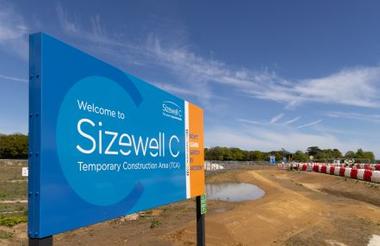Charities have expressed concerns about their energy bills rising next month as a levy to fund future nuclear power projects is introduced.
Social Investment Business (SIB) estimated that charities with buildings could see their bills rise by up to £240 a year on average, with some paying thousands of pounds more.
From 1 November, all electricity suppliers will have to pay a nuclear regulated asset base (RAB) charge that will be based on their market share and recovered from customers.
The government previously confirmed that the RAB charge, introduced under the Nuclear Energy (Financing) Act 2022, will support the construction of the Sizewell C nuclear power station in Suffolk.
SIB told Civil Society that the RAB charge could cost the charitable sector as a whole over £2m a year.
Impact on charity services
SIB examined data across its £300m Youth Investment Fund and £15m Energy Resilience Fund, including energy bills and usage submitted by charities funded.
By calculating the cost of the new levy (£3.455/MWh) for their annual usage, SIB found that, on average, charities with a building could see their bills rise by £100-£240 annually.
SIB said a “significant proportion” of charities could face even higher bills, with some facing a yearly increase of more than £2,500.
It warned that this rise in electricity bills “will add even more pressure to charities, who aren’t protected by schemes like the price cap for households, or the full protections available to EIIs”.
“The sector is particularly vulnerable to increasing prices due to the low turnovers of volunteer-led clubs and the often-draughty buildings available for community groups,” SIB said.
Beth Wilson, chief executive of Wellspring Settlement, said the levy would impact the services her charity provides for people of all ages from its centre in Bristol.
“I urge the government to consider the impact this could have and act quickly,” Wilson said.
Kate Ward, deputy director of Bristol-based arts charity Spike Island, said the levy could hamper its environmental ambitions.
“Rising electricity costs will prevent us from switching to low-carbon heating like heat pumps, increase our running costs and put our work with artists at risk,” Ward said.
“The government needs to rethink how they approach electricity bills to make it viable for more charities and small businesses to make the right decisions for the planet.”
SIB: Charging model ‘no longer fit for purpose’
Nick Temple, CEO of SIB, said that adding more charges to charities’ electricity bills “penalises our most vital community spaces at a time when they’re already struggling”.
“It’s also in opposition to the government’s mission to achieve net zero by making electricity more expensive for consumers just at the time we’re being urged to switch to electric heat pumps to reduce emissions,” Temple said.
“The government must urgently provide an exemption to this new levy for charities, who are particularly vulnerable to rising costs.
“They should drop this model of adding charges onto electricity all together, which is no longer fit-for-purpose and is slowing down the country’s transition to renewables and inflates everyone’s bills.”
A government spokesperson said: “Thriving small businesses and charities are at the heart of our communities, which is why we’ve extended business rates relief, supporting economic growth across the country and support for those who need it most.
“The only way to bring down energy bills for good is with the government’s clean energy superpower mission, which will also secure thousands of good, skilled jobs and billions in investment.”











